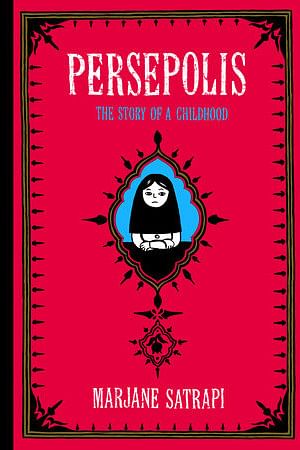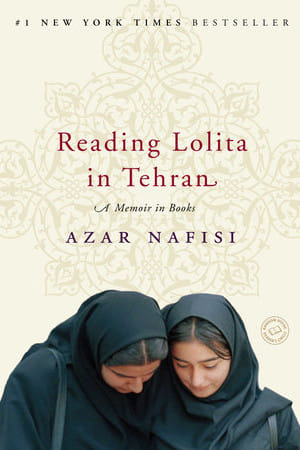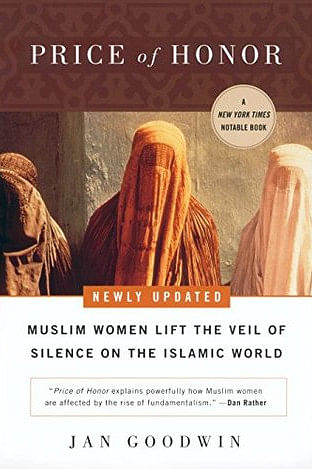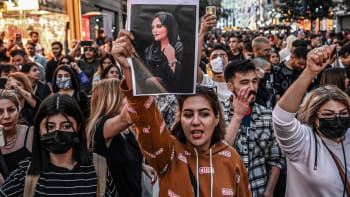Books to read about the oppression of women in Iran

With the death of 22-year-old Mahsa Amini, whom Iran's notorious morality police killed on September 16 for wearing the hijab "improperly", protests against the totalitarian and dogmatic Islamic regime are raging across all parts of Iran. Among the protestors are not just women who have been burning their mandatory head scarves and cutting their hair in public, but men who are joining them on the streets too.
To understand the socio-political context and the country's present state of affairs—one which gave birth to such daring dissenters—it is important to read books and stories which unveil the experience of individuals chained by Iran's despots.
The following books capture such experiences in a vivid manner.

PERSEPOLIS
Marjane Satrapi, trans. Mattias Ripa and Blake Ferris
(Pantheon, 2000)
Marjane Satrapi's series of graphic memoirs follows her life from her early childhood to adulthood in the aftermath of the Iranian Revolution. Due to her family's left-leaning teachings, Satrapi finds herself struggling in the midst of vast changes and injustices while wrestling against the restrictions put on her public life by the new regime. Using monochromatic comic strips, she exposes the perplexing contrast between the public and private lives of Iranian citizens.
Recounting her own experiences and sharing the stories of her family's experience during the overthrow of the Shah's regime, the establishment of the Islamic Republic and the horrors of the Iraq-Iran war, she portrays a powerful image which transcends through time and helps the reader contextualise the recent protests.

READING LOLITA IN TEHRAN
Azar Nafisi
(Random House, 2003)
Azar Nafisi's eloquent memoir covers a fragment of her life from her return to Iran during the Iranian Revolution to her emigration from the country in 1997. Centering the memoir around the lives of eight female students who secretly gathered in her house every Thursday to read forbidden works of Western literature, including Lolita, The Great Gatsby, Pride and Prejudice, and Henry James, she narrates the tale of how the hopes and dreams of many Iranians, especially women, are shattered by the strict imposition of rules by the new regime. Illuminating the struggles of women throughout her memoir, Nafisi shares personal anecdotes about how literature can provide solace to people living under totalitarianism.

THE ENLIGHTENMENT OF THE GREENGAGE TREE
Shokoofeh Azar, trans. Anonymous
(Europa Editions, 2017)
Originally published in Persian, Shokoofeh Azar's 2020 International Booker Prize-shortlisted novel is set in the decade following the Iranian Revolution. The story is narrated by the ghost of a 13-year-old girl named Bahar who died in a fire after her family home—a secular and intellectual hub—in Tehran is attacked by zealots. Bahar's ghost is omnipresent throughout much of her family's tumultuous life as they struggle to adjust with their new settlement in the forsaken village of Razan.
However, this serenity is soon disturbed as the family's only son, Sohrab, is arrested and executed on fragile grounds. Using vivid details in narrating Sohab's sub-plot, Azar reveals the brutality of the Islamic regime while incorporating elements such as magical realism to introduce readers to aspects of traditional Iranian folk tales such as that of djinns.

PRICE OF HONOR: MUSLIM WOMEN LIFT THE VEIL OF SILENCE ON THE ISLAMIC WORLD
Jan Goodwin
(Plume, 1994)
Written by award-winning journalist Jan Goodwin, Price of Honor investigates the lives of Muslim women living in the Islamic world as narrated by themselves. The author travels across the Middle East and North Africa and explores the customs and the traditions of the Islamic world and tries to understand how these influence the way women are treated.
The resulting material is a compelling account of how fundamentalism has impacted the lives and ambitions of women from all parts of the socio-economic spectrum. With a special focus on Iran in the fifth chapter of the book, the personal anecdotes make her writing much more credible as women across Iran are seen to be voicing their vitriol against the present regime.

IRAN AWAKENING: A MEMOIR OF REVOLUTION AND HOPE
Shirin Ebadi
(Random House, 2006)
Iran Awakening by author and lawyer Shirin Ebadi—winner of the Nobel Peace Prize 2003—covers her life growing up in an unconventional family in pre-revolution Iran, as she navigates through her marriage, her battles as a lawyer and her experiences of raising daughters under the oppressive regime.
The book dramatically captures her story: she was the first female judge in the country, but was then demoted to a clerk in the courtroom when the religious authorities barred women from serving as justices. She fought back against the oppressive system. Her memoir is a moving story of how the Islamic regime clamped down on the rights of women in post-revolutionary Iran.
Hrishik Roy is an intern at Daily Star Books. Reach out to him at [email protected]

 For all latest news, follow The Daily Star's Google News channel.
For all latest news, follow The Daily Star's Google News channel. 








Comments